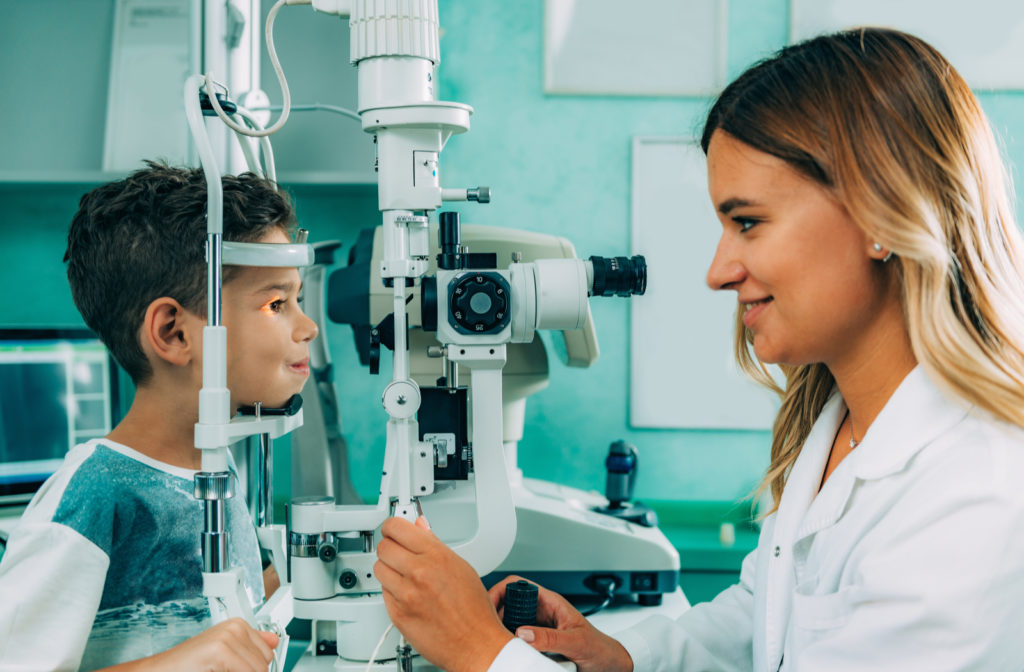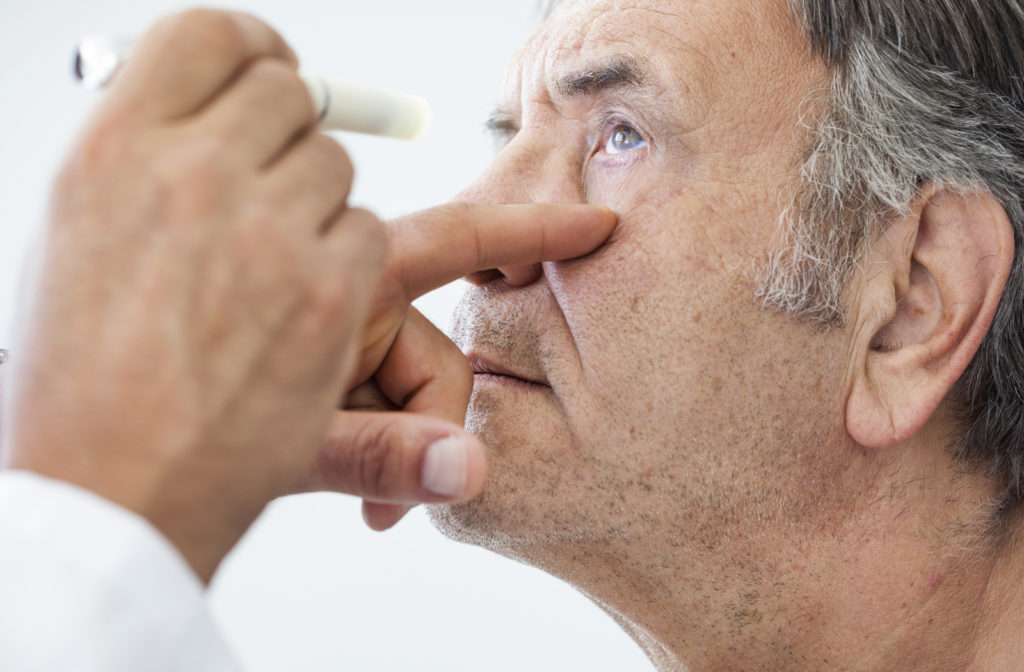Visiting your eye doctor for regular eye exams is important for protecting your eye health and vision. Besides looking for changes in your vision, your eye doctor conducts many tests to identify eye problems. Because eye exams are vital for your health, how often should you visit your optometrist?
Continue reading to learn more about how often you should visit your eye doctor.
The Importance of Eye Exams
Comprehensive eye exams are more important than you think. When you visit your optometrist, they test for more than how well you can see. You experience several diagnostic tests that help your eye doctor identify signs of eye disease and other potential problems.
Your eyesight is precious, and many eye conditions can develop with little to no symptoms. Regular eye exams are the only way your optometrist can identify changes in your eye health and vision. When diagnosing issues early, you increase your chances of recovery and prevent further damage to your vision.
Several eye conditions become more common as you age. Your eye doctor can diagnose the following conditions during a comprehensive eye exam:
- Refractive errors: Refractive errors affect your everyday vision, making it harder to see—presbyopia is common in adults after age 40, affecting how well your eyes focus during close-up tasks
- Glaucoma: Glaucoma is a group of eye diseases that damage the optic nerve, causing irreversible vision loss if left uncorrected—many but not all forms of this disease raise your intraocular pressure
- Age-related macular degeneration: Age-related macular degeneration (AMD) is a condition causing the gradual decay of your macula—you progressively lose your central vision while your side vision remains the same
- Cataracts: A cataract is the clouding of your eyes lens—this condition typically occurs due to age, worsening your vision until you struggle to read, drive, or read the expression on someone’s face
Regular eye exams are important, but many people think they don’t need one if they can see fine. Even if your vision is normal, you may have an underlying issue you’re unaware of. How often should you visit your eye doctor?
How Often Should You Visit Your Eye Doctor?
Your eye exam frequency depends on age and other factors. If you’re a healthy adult aged 19–64 with no current problems, you should have an eye exam at least every 2 years.
After turning 65, an annual exam is ideal for your eye health and vision. Many eye diseases can develop with age, and yearly exams can help your optometrist track any changes in your vision.
You may need more frequent eye exams if you have certain conditions, like diabetes. If under 19, an annual exam is beneficial for protecting your vision. The eyes go through many changes as someone grows into adulthood.
While these are recommendations from the Canadian Association of Optometrists, listen to your optometrist’s advice. They can recommend an examination schedule that meets your unique needs.
With how important eye exams are for your vision, don’t delay your appointment. Depending on your age, you may not even need to worry about the cost. Alberta Health Care provides children under 19 and adults 65 and older with one complete eye exam per benefit year.
What should you expect when you visit your eye doctor for an eye exam?
What Happens During Your Eye Exam?
Your eye exam features several diagnostic tests that help your eye doctor get a complete picture of your eye health and vision. The goal of these tests is to catch any problems as early as possible to help protect your vision. Expect to take an active role—your eye doctor will ask you questions throughout the exam.
You can expect the following during your eye exam:
Medical History
Your exam begins with a discussion about your medical history. Your optometrist will ask about your family history, lifestyle, and other relevant factors. During this section of the exam, you can bring up any eye issues you’re experiencing or any questions or concerns you may have.
Testing
The testing section of your exam involves several tests that assess different aspects of your eye health and vision. Your optometrist typically begins with a visual acuity test to see how well you can see and if there are any changes in your prescription. Afterwards, your eye doctor will assess your eye health using different technologies to look for signs of eye diseases.
Prescription Changes
After completing the necessary tests during your exam, your optometrist will review the overall results. If your prescription has changed, they can discuss using glasses or contact lenses to provide you with clear vision.
This is an overview of what to expect during your eye exam. Everyone’s vision and eye health are different, and your optometrist will cater your exam to meet these needs.

Why You Should Visit River Heights Eye Care
Regular eye exams play a vital role in maintaining your eye health and vision. While it can seem tempting to avoid booking an eye exam because you can see fine, you should never assume. An eye exam can help identify problems before they affect your vision.
Visit River Heights Eye Care if you need an eye exam. With modern eye care technology and a friendly, caring approach, we can help meet your vision-related needs.
Visit us in Cochrane if you need an eye exam. We’re here to help.


